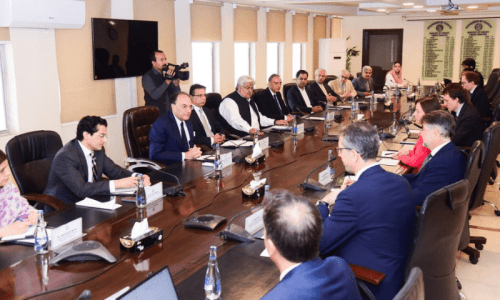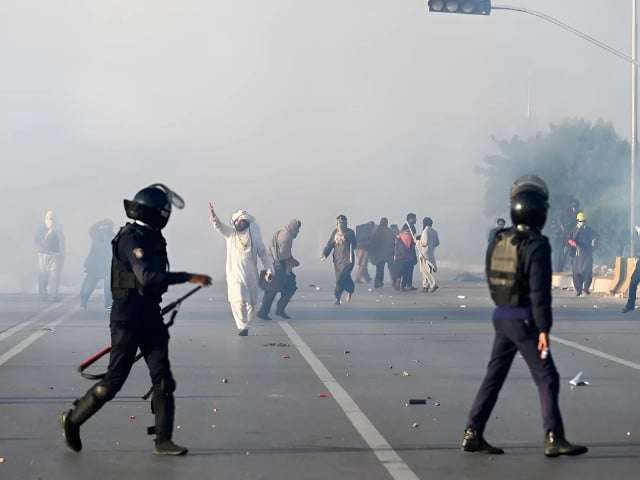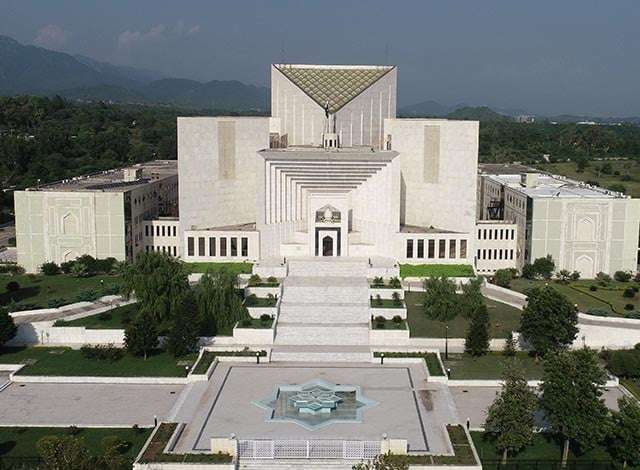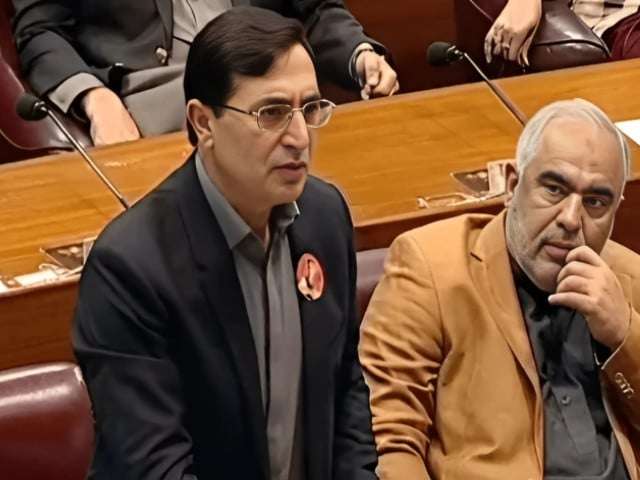Pakistan’s fiscal trajectory took an unexpected turn this week, as it concluded unscheduled talks with the International Monetary Fund (IMF) under tight confidentiality. The weeklong discussions, which ended on a significant note on Friday, revealed key adjustments to the country’s fiscal policies, including a revision that saw Punjab, the country’s largest province, shift from a fiscal deficit to a surplus. This surprising change came only two weeks after initial reports painted a grim financial outlook for the province. The talks also explored Pakistan’s aspirations to expand its loan program and discussions surrounding climate financing, which has taken center stage in international financial discussions.
Punjab’s Fiscal Turnaround: From Deficit to Surplus
The fiscal situation in Punjab, once marked by a Rs160 billion deficit for the first quarter of FY2024-25, has now been revised, marking a significant turnaround. According to sources, the provincial government had initially allocated Rs200 billion for pension provisions, which led to an apparent deficit. However, the adjustment of this accounting provision has resulted in Punjab achieving a surplus of Rs40 billion. The Finance Ministry endorsed the provincial government’s stance, highlighting that the surplus is a result of accounting changes rather than actual expenditure cuts.
In an official statement, the Ministry of Finance affirmed that Punjab’s contribution to the provincial surplus in recent years had been instrumental, citing that the province had budgeted Rs630 billion as surplus for the current fiscal year. This move aligns with the broader target of fiscal responsibility set by the IMF, which had called for significant provincial surpluses as a measure of fiscal stability.
Fiscal Adjustments and the Broader Picture
The revision of fiscal data, which saw a significant “statistical discrepancy” adjustment of Rs377.6 billion to Rs177.6 billion in Punjab’s balance sheet, is a rare occurrence in Pakistan’s fiscal policy. This correction, however, raises questions about the accuracy of previous fiscal reports and the potential for further revisions. Despite the positive revision, Punjab’s surplus remains the smallest among the country’s four provinces, with smaller provinces already having met their surplus commitments for the year.
The IMF mission, led by mission chief Nathan Porter, also discussed Pakistan’s agricultural tax system, which remains a point of contention. Smaller provinces raised concerns about the IMF’s stance on reducing wheat support prices, fearing that it could exacerbate food security issues, especially in less-developed regions like Khyber Pakhtunkhwa and Balochistan. Additionally, the IMF focused on the implementation of agriculture income tax laws, with officials pointing out the challenges in enforcing such laws, particularly in rural areas where literacy rates are low, and the tax base is hard to track.
The IMF’s Role in Pakistan’s Economic Reforms
The ongoing dialogue between Pakistan and the IMF is crucial for the country’s economic recovery. The IMF’s primary focus has been on fiscal consolidation, debt management, and structural reforms, particularly within the agricultural sector. This ongoing collaboration has been integral in maintaining fiscal discipline, but challenges remain. Pakistan has committed to achieving a significant increase in agricultural tax revenue, targeting Rs1 trillion in revenue over the next few years, compared to the current tax yield of under Rs10 billion.
In line with these discussions, the IMF also explored the issue of climate financing. Pakistan, a country that has faced severe climate-related disasters, has applied for an additional loan of $1.2 billion to address climate resilience efforts. The IMF has previously provided cheaper financing to nations affected by climate disasters, and Pakistan hopes to benefit from such a program to bolster its adaptation strategies and disaster recovery plans.
Climate Financing: A Global Priority
Climate change remains a central theme in global financial discussions, and Pakistan has been actively seeking support to address its vulnerabilities. As one of the most climate-vulnerable countries in the world, Pakistan’s application for additional climate financing is seen as a crucial step toward building resilience against future climate shocks. The IMF has already extended financial assistance to several countries affected by natural disasters, and Pakistan’s request aims to tap into this funding pool to mitigate the impact of climate change.
The international community’s focus on climate financing underscores the importance of sustainable development. For Pakistan, securing this funding is essential not only for immediate recovery but also for long-term adaptation to climate challenges, including flooding, droughts, and heatwaves.
Pakistan’s Path to Economic Stability: A Tightrope Walk
While the fiscal situation in Punjab has improved, the broader economic challenges facing Pakistan remain significant. The country’s fiscal deficit, revenue shortfalls, and inflation continue to pose challenges for the government. The recent revision in fiscal data and the discussions with the IMF highlight the ongoing balancing act between fiscal austerity and development priorities.
Pakistan has committed to implementing a wide range of structural reforms to stabilize its economy. These include changes to the tax system, such as the introduction of an agriculture income tax, and efforts to improve revenue collection through better documentation of income and wealth. The success of these reforms will depend on the capacity of provincial governments to implement the necessary policies and regulations.
SEE ALSO:
The Role of Provincial Governments
For the first time, Pakistan’s provincial governments have been directly involved in discussions with the IMF as part of the loan program. This shift marks a significant change in the way fiscal policies are being shaped and implemented across the country. Provincial governments are now seen as key players in achieving fiscal targets, with the IMF urging them to increase cash surpluses and implement structural reforms in key sectors such as agriculture.
However, there are challenges in aligning provincial priorities with the broader goals of fiscal consolidation. While Punjab has made progress, the smaller provinces have raised concerns about the potential negative impact of IMF policies on local economies, particularly in sectors like agriculture.
Conclusion: A New Chapter in Pakistan’s Economic Strategy
The conclusion of these unscheduled talks with the IMF signals a new phase in Pakistan’s economic stabilization efforts. While the revision of fiscal data in Punjab is a positive step, the broader fiscal challenges remain. The IMF’s support is crucial in ensuring that Pakistan continues on the path of fiscal consolidation while addressing pressing issues like climate change and agriculture sector reform.
As Pakistan moves forward, the key to success will be the effective implementation of reforms at both the provincial and national levels. The government must ensure that its commitments to fiscal discipline, climate adaptation, and agricultural tax reform are met in a way that fosters long-term economic stability and growth.
Frequently Asked Questions (FAQs)
1. Why did Punjab’s fiscal situation change from deficit to surplus?
Punjab’s fiscal situation was revised after the province pitched a Rs200 billion pension provision, which was later adjusted to account for an actual surplus of Rs40 billion. The revision corrected earlier discrepancies in fiscal data, turning the deficit into a surplus.
2. What is Pakistan’s agricultural tax revenue target for the future?
Pakistan aims to increase its agricultural tax revenue to Rs1 trillion over the next few years. Currently, the agricultural tax yield stands at under Rs10 billion, with a significant gap to meet future targets.
3. How does climate financing play a role in Pakistan’s economic recovery?
Climate financing is crucial for Pakistan, as it seeks to address the impacts of climate change, including floods and droughts. Pakistan has applied for an additional $1.2 billion in climate financing from the IMF to build resilience and adapt to climate-related challenges.
4. What challenges do smaller provinces face in implementing IMF policies?
Smaller provinces like Khyber Pakhtunkhwa and Balochistan have raised concerns about the IMF’s agricultural policy recommendations, fearing negative impacts on food security in less-developed regions. They also face challenges in implementing tax laws due to capacity constraints.
5. What role do provincial governments play in Pakistan’s economic reforms?
Provincial governments are now directly involved in Pakistan’s negotiations with the IMF, playing a crucial role in achieving fiscal targets and implementing structural reforms, especially in sectors like agriculture and tax collection.



